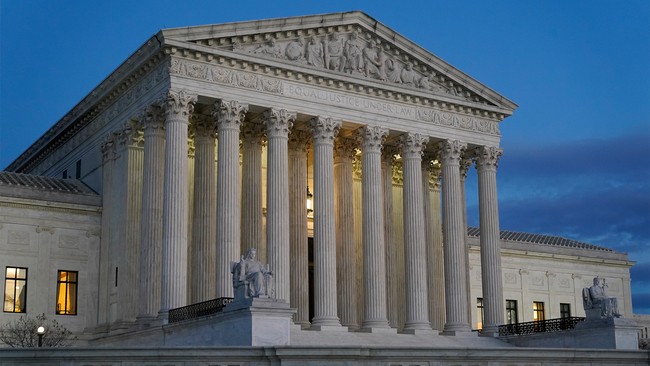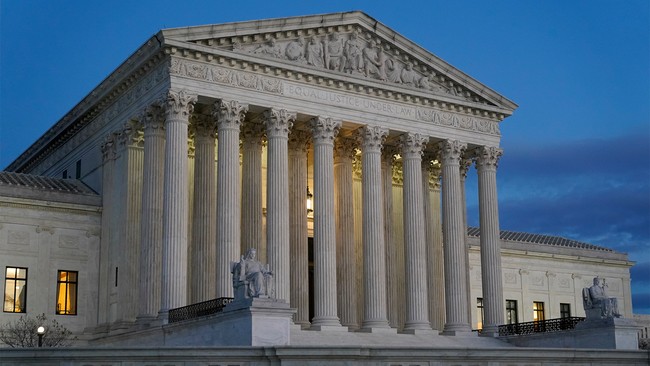
The Trump administration notched a significant win two weeks ago, when the D.C. Circuit Court of Appeals issued a ruling vacating lower court injunctions regarding USAID funding. In a 2-1 decision, the appellate court held that:
The district court erred in granting that relief because the grantees lack a cause of action to press their claims. They may not bring a freestanding constitutional claim if the underlying alleged violation and claimed authority are statutory. Nor do the grantees have a cause of action under the APA because APA review is precluded by the Impoundment Control Act (ICA). And the grantees may not reframe this fundamentally statutory dispute as an ultra vires claim either. Instead, the Comptroller General may bring suit as authorized by the ICA. Accordingly, we vacate the part of the district preliminary injunction involving impoundment.
READ MORE: And Another One: D.C. Circuit Court of Appeals Vacates Injunction on USAID Funding
As noted in the initial reporting on the decision (and by several of our astute readers, as well), that win was not the end of the inquiry. As anticipated, the plaintiffs in the combined cases moved for a rehearing en banc and sought a stay of the decision…and then things stalled out. The court denied the motion for an administrative stay, noting that, “Because this court’s mandate has not yet issued, the preliminary injunction that requires the government to obligate the appropriated funds remains in effect.” So, now, the case remains in limbo, awaiting a decision from the D.C. Circuit as to whether it will grant the motion for rehearing en banc and leaving the lower court injunctions in force unless/until that is determined.
But the clock is ticking, and so the administration has once again turned to the Supreme Court, applying for a stay of the injunctions. In the application, Solicitor General John Sauer points to the quandary now presented:
The D.C. Circuit correctly vacated the preliminary injunction. The panel recognized that this Court’s decision in Dalton v. Specter, 511 U.S. 462 (1994), forecloses respondents’ cause of action. Dalton held that “claims simply alleging that the President has exceeded his statutory authority are not ‘constitutional’ claims, subject to judicial review.” Id. at 473. That is all respondents have alleged—that, six months before the end of the fiscal year, the government purportedly acted without statutory authority by not yet obligating the appropriated funds or notifying Congress of an intent to rescind or defer the funds. The panel also held that respondents cannot bring their claims under the Administrative Procedure Act (APA), 5 U.S.C. 701 et seq. The APA does not supply a cause of action when another statute “preclude[s] judicial review” either through its text or structure, 5 U.S.C. 701(a)(1)—as the ICA does here. Finally, the panel held, respondents cannot meet the high bar for an ultra vires claim; they cannot point to any specific statutory command that the government has violated. See Nuclear Regulatory Comm’n v. Texas, 605 U.S. 665, 681-682 (2025).
Now, with September 30 fast approaching, the en banc D.C. Circuit has effectively maintained the district court’s preliminary injunction without explanation—notwithstanding the panel opinion, issued after full briefing and argument on the merits—and exacerbated its destabilizing consequences. Absent this Court’s intervention, the D.C. Circuit’s inaction will preclude the government from proposing rescissions and allowing funds to expire if Congress’s fails to act before September 30. In other words, it will effectively force the government to rapidly obligate some $12 billion in foreign-aid funds that would expire September 30 and to continue obligating tens of billions of dollars more—overriding the Executive Branch’s foreign-policy judgments regarding whether to pursue rescissions and thwarting interbranch dialogue. That alone is irreparable harm. See, e.g., National Inst. of Health v. American Public Health Ass’n, No. 25A103, 2025 WL 2415669 (Aug. 21, 2025); Department of Education v. California, 145 S. Ct. 966 (2025). And unless this Court grants relief by September 2, the Executive Branch must also take extensive preliminary steps that themselves inflict irreparable harm on the United States—for instance, negotiating with foreign countries about the scope and conditions of potential assistance programs. Even if the government were to prevail, backtracking on those commitments and proposing rescissions after September 2 would inflict irreparable diplomatic costs and generate needless interbranch friction. App., infra, 133a.
RELATED: Judge’s Modification to USAID Order Fits a Pattern That Is Worth Watching
BREAKING: Supreme Court Rules on Trump Administration’s Application for Stay in USAID Funding Case
The application, filed late Tuesday, seeks both an administrative stay and, ultimately, a stay of the lower court injunctions and requests a decision by September 2. My suspicion is that SCOTUS will, at minimum, issue an administrative stay before the weekend. We will, of course, continue to follow the case and provide updates as warranted.
Editor’s Note: Radical leftist judges are doing everything they can to hamstring President Trump’s agenda to make America great again.
Help us hold these corrupt judges accountable for their unconstitutional rulings. Join RedState VIP and use promo code FIGHT to get 60% off your membership.









